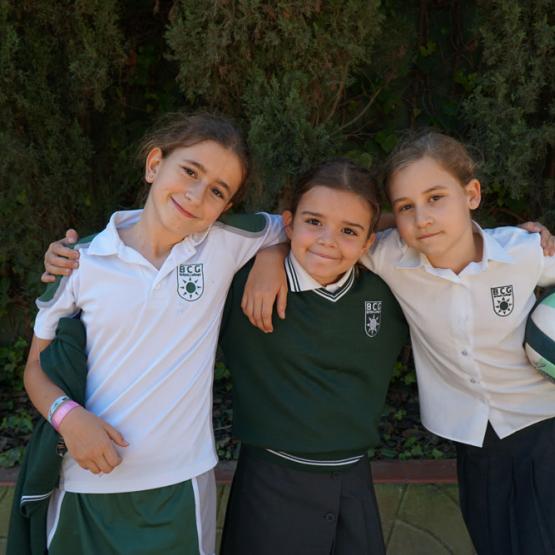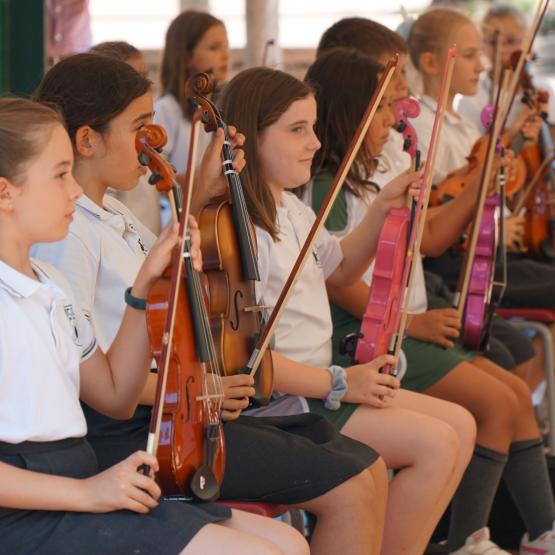UPPER PRIMARY
We work to inspire creativity and an excitement for learning that will remain with your child for life.
This is why, at this young age, we introduce our children to the concept of opportunity. The opportunity to learn, to create and above all to discover, nurture and maximise all individual talents in order to reach and exceed their full potential.
WELCOME TO UPPER PRIMARY
by the Head of EYFS & Primary Ms Wakelin
I would like to extend a very warm welcome to the school community at the British College of Gavà. It is wonderful to be leading the Upper Primary school at this exciting time of growth and development. The expansion of our school site, coupled with the strength of our fantastic team of teachers, puts us in pole position for ensuring your children are ready and prepared to forge their own successful way through school life and beyond.
We believe that young children learn best when they are stimulated, motivated and hooked into learning in their preferred way. Sufficient and appropriate challenge, together with a curriculum designed to inspire, accelerate and encourage active learning will ensure your child is ready for the ever-changing, fast paced world in which we live. We highly value the whole child and strive for our pupils to be emotionally intelligent and emotionally strong. Active encouragement of our pupils to be inquisitive about the world around them lies at the very heart of learning at BCG.
My aim is to ensure our curriculum is rich and rigorous, and designed with our community and pupils in mind. I firmly believe that community cohesion lies at the heart of any successful school. We greatly value the views of the school community and throughout the year provide opportunities for both children and parents to contribute their ideas.
The Parent Forum is now firmly established and I encourage you to become involved as much as you can.
At the British College of Gavà, we excel in nurturing children who leave us bold, resilient and unique. A solid education, in an unrivalled setting - where we celebrate every child’s success - form the bedrock of a future that is brighter beyond imagination.
I look forward to meeting you and your families.


UPPER PRIMARY SUBJECTS
Art and Design
Children observe and draw simple shapes as well as look at the effect of light on an object from different directions. Produce increasingly accurate drawings of people by experimenting with the potential of various tools to show tone and texture.
Children produce increasingly detailed preparatory sketches for painting and other work, the concept of perspective is introduced.
English
We blend the teaching, learning and application of technical reading and writing skills with an ethos that encourages creativity and flair whilst encouraging our children to become self-motivated, independent and reflective learners.
Throughout this Key Stage, the children are guided toward developing their English language skills in a range of different ways and contexts in order to prepare them for their further education as English speakers, readers and writers. As the Key Stage progresses and the children enter Years 5 and 6, we have an eye on their movement into the Secondary School and begin to tailor their lessons, gradually, toward the Secondary methodology meaning that the children are able to access the Secondary Curriculum with ease when they move into Year 7.
We offer intensive additional EAL support for learners who are beginning their English journey, with a view to them being able to securely access the Secondary English curriculum as the children enter Key Stage 3.
We work tirelessly to ensure the best levels of Communication, Understanding, Reading and Writing while encouraging the skills of creativity and instilling a self reflective work ethic in all of the children.
Geography
Pupils extend their knowledge and understanding beyond the local area to include the United Kingdom, Spain, Europe, North and South America. This includes the location and characteristics of a range of the world’s most significant human and physical features. They develop their use of geographical knowledge, understanding and skills to enhance their locational and place knowledge.
Mathematics
Maths in KS2 is underpinned by key principles that enable pupils to successfully build upon their progress at the end of KS1 that will equip them with key skills such as, calculating, predicting, observing and estimating. These skills will be widely used throughout their lives.
Our KS2 curriculum enables pupils to develop the ability to think, reason and solve. We believe that children learn best through direct experience and through numerous opportunities to develop mathematical language and to discuss mathematical ideas.
Music
In KS2 Music, pupils engage in a variety of styles and genres of music through performing, composing and listening. Music lessons are practical and engaging, aimed at inspiring a love of music as well as encouraging open-mindedness to music of all cultures and historical periods. Children develop self-confidence through creativity, teamwork and performance.
Pupils complete group composition projects and begin to learn how to listen critically to music, leading to enhanced understanding and appreciation of a variety of music. They also develop keyboard skills and by the end of Year 6 they have a basic knowledge of reading treble clef and rhythmic notation.
PE
A high-quality physical education curriculum inspires all pupils to succeed and excel in competitive sport and other physically-demanding activities. It should provide opportunities for pupils to become physically confident in a way which supports their health and fitness.
Opportunities to compete in sport and other activities build character and help to embed values such as fairness and respect. Sports covered include gymnastics, football, volleyball, hockey, rugby, rounders, cricket, athletics and basketball.
Science
The principal focus of science teaching is to enable pupils to broaden their scientific view of the world around them. They should do this through exploring, talking about, testing and developing ideas about everyday phenomena and the relationships between living things and familiar environments, and by beginning to develop their ideas about functions, relationships and interactions.
History
Students discover the different ways in which history is recorded and how historians and archaeologists use evidence to reach conclusions about the past. They also explore multiple sources of evidence and question different perspectives on events and historical debates to form their own opinions.
French
Students start learning French in Year 3. The focus is very much on communicating and acquiring the basics through engaging activities, including games and songs. As they grow in confidence, students are exposed to more reading and writing tasks. Lessons are planned and delivered according to students' abilities and backgrounds.
Native speakers study the same topics but complete more advanced tasks, using authentic resources.
Spanish and Catalan as a foreign language
Students focus on oral communication, reading comprehension, written expression, literary dimension and multilingual and intercultural dimension. The methodology combines theory and practice, encouraging meaningful learning, enhances personal autonomy and favors working collaboratively.
Information and Communication Technology
Students use ICT to research, plan and present work in a variety of programs such as Google Docs and slides. They access their Google Classroom to work in school and at home. The use of IT programmes are used to ensure students have the relevant knowledge and skills to be more independent learners as they move into secondary school.
Internet safety is very important and we focus on using equipment carefully and safely, both in school and at home.
